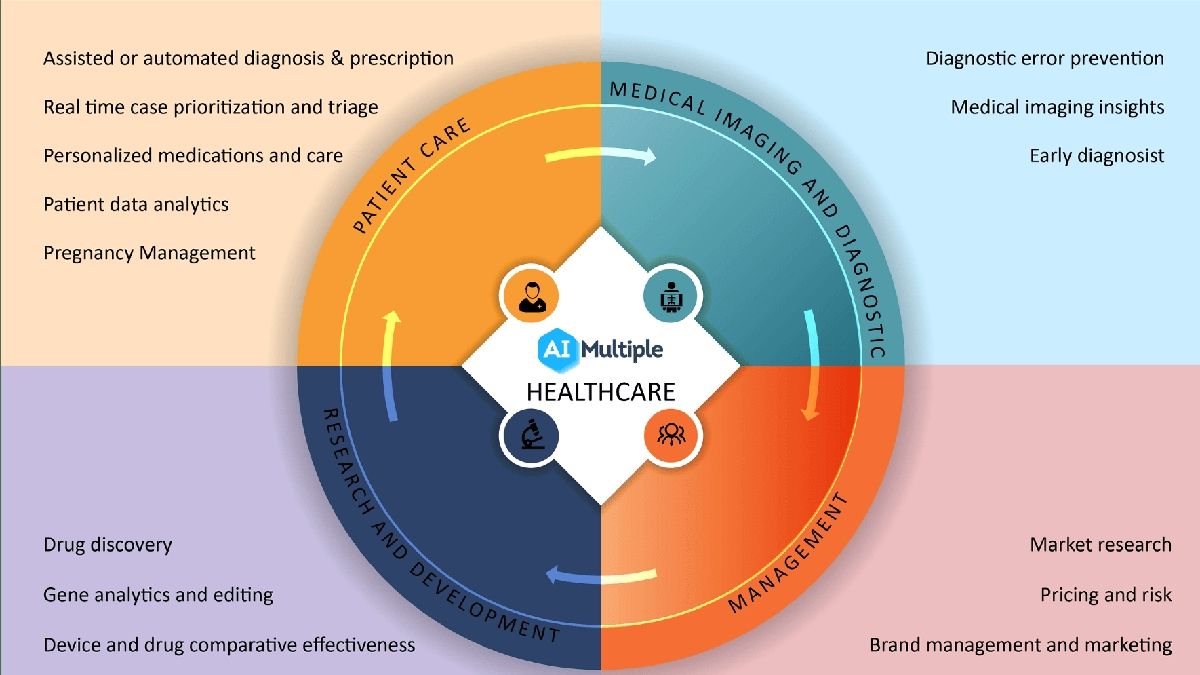
AI’s Transformative Impact on Healthcare: New Breakthroughs and ChallengesAI’s Transformative Impact on Healthcare: New Breakthroughs and Challenges Artificial intelligence (AI) is revolutionizing the healthcare industry, offering transformative breakthroughs and presenting new challenges that must be navigated. Breakthroughs: * Precision Medicine: AI algorithms analyze vast medical data to create personalized treatment plans based on each patient’s genetic profile, health history, and lifestyle. * Early Detection: AI-powered diagnostic tools detect diseases at an early stage, increasing survival rates and reducing treatment costs. * Automated Diagnostics: AI assistants diagnose conditions based on patient data, reducing human error and speeding up the diagnosis process. * Virtual Health Assistants: AI-powered chatbots and virtual assistants provide 24/7 access to medical information, guidance, and support. * Drug Discovery and Development: AI algorithms accelerate drug discovery by analyzing large datasets of compounds and predicting potential candidates. Challenges: * Data Privacy and Security: The use of AI in healthcare requires the handling of sensitive medical data, posing risks of privacy breaches and data vulnerability. * Algorithm Bias: AI algorithms can be biased due to the data they are trained on, leading to inaccurate or unfair predictions. * Ethical Considerations: AI raises ethical questions about autonomy, patient consent, and the potential impact on healthcare providers’ roles. * Job Displacement: AI technologies may automate certain tasks performed by healthcare workers, leading to concerns about job loss and displacement. * Regulatory Frameworks: The lack of clear regulatory frameworks for AI in healthcare can hinder its widespread adoption and raise safety concerns. Addressing the Challenges: * Data Governance and Security: Establish robust data governance policies and implement strong cybersecurity measures to protect patient privacy and ensure data integrity. * Algorithm Validation and Transparency: Validate AI algorithms through rigorous testing and ensure transparency in their development and use. * Ethical Guidelines: Develop ethical guidelines for AI in healthcare to address patient consent, autonomous decision-making, and the impact on healthcare workforce. * Upskilling and Reskilling: Provide healthcare providers with training and support to adapt to the evolving AI landscape and acquire new skills. * Regulatory Harmonization: Collaborate with regulatory bodies to establish clear and consistent frameworks for AI in healthcare, ensuring patient safety and innovation. Conclusion: AI’s transformative impact on healthcare holds immense promise for improving patient outcomes, reducing healthcare costs, and enhancing efficiency. However, addressing the associated challenges is essential to ensure ethical, equitable, and responsible adoption of this technology. By embracing collaboration, innovation, and rigorous oversight, the healthcare industry can harness the power of AI to revolutionize patient care and shape a brighter future for health.
Posted inNews